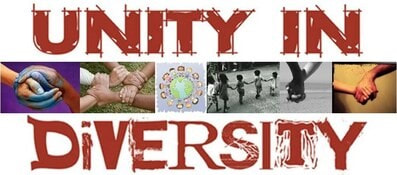One of the most striking and beautiful characteristics of the church is her diversity. She reaches across the world and makes disciples of all nations. While the global church may be made up of every race, sex, and ability, many local churches struggle with homogeneity. Another problem is when churches welcome others who are different, hoping that they will assimilate and adhere to their church’s customs, which may be outside of what Jesus asks of his people.
When building teams or choosing leadership, churches must remember that a body is composed of many parts, and each has their particular function.
In Judges 3 it was Ehud’s differing characteristic that enabled him to be Israel’s deliverer from Eglon, the king of Moab. Ehud was a left-handed strategist who was born into a right-handed society. While this difference is slight, it was vital to his success as a judge. Ehud was underestimated because he was different,
Judges 3:15-23 CEV The Israelites begged the Lord for help, and the Lord chose Ehud from the Benjamin tribe to rescue them. They put Ehud in charge of taking the taxes to King Eglon, but before Ehud went, he made a double-edged dagger. Ehud was left-handed, so he strapped the dagger to his right thigh, where it was hidden under his robes. Ehud and some other Israelites took the taxes to Eglon, who was a very fat man. As soon as they gave the taxes to Eglon, Ehud said it was time to go home. Ehud went with the other Israelites as far as the statues at Gilgal. Then he turned back and went upstairs to the room where Eglon had his throne. Ehud said, “Your Majesty, I need to talk with you in private.” Eglon replied, “Don't say anything yet!” His officials left the room, and Eglon stood up as Ehud came closer. “Yes,” Ehud said, “I have a message for you from God!” Ehud pulled out the dagger with his left hand and shoved it so far into Eglon's stomach that even the handle was buried in his fat. Ehud left the dagger there. Then after closing and locking the doors to the room, he climbed through a window onto the porch
We lose strength as the church when we demand that people think, act, and look the same. We should all stand firm on the Word of God by following his commandments as the Spirit enables, seeking unity amidst diversity. We are at our best in glorifying God when the different parts of the church body function as a whole.
1 Corinthians 12:12-18 CEV. The body of Christ has many different parts, just as any other body does. Some of us are Jews, and others are Gentiles. Some of us are slaves, and others are free. But God's Spirit baptized each of us and made us part of the body of Christ. Now we each drink from that same Spirit. Our bodies don't have just one part. They have many parts. Suppose a foot says, “I'm not a hand, and so I'm not part of the body.” Wouldn't the foot still belong to the body? Or suppose an ear says, “I'm not an eye, and so I'm not part of the body.” Wouldn't the ear still belong to the body? If our bodies were only an eye, we couldn't hear a thing. And if they were only an ear, we couldn't smell a thing. But God has put all parts of our body together in the way that he decided is best.
|
|
|
|

 RSS Feed
RSS Feed